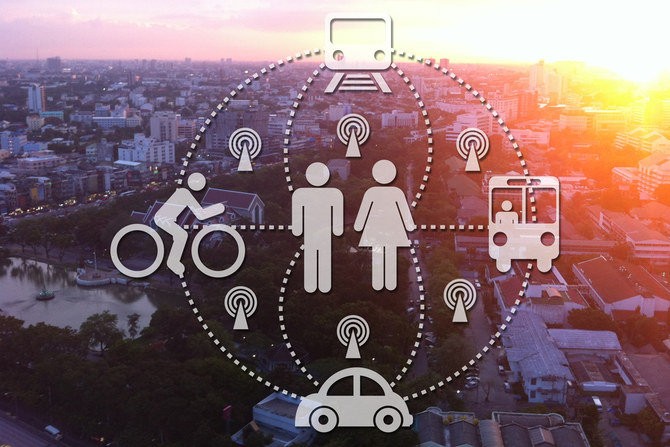How the pandemic shaped the sharing economy

https://arab.news/bnjxg
We can talk extensively about all the negative things the coronavirus pandemic has caused since 2020. However, we cannot ignore some of the positive things that the world has accomplished in order to adapt to the suddenly changed environment brought about by COVID-19.
The concept of the sharing economy is not new, but the pandemic has given it new impetus.
Dramatic turnaround
At first, it looked like firms such as Airbnb might be casualties of the pandemic. By late spring of 2020, bookings at the online vacation rental company had dropped by more than 70 percent and its valuation was halved. But the firm appeared to barely flinch. It drastically cut marketing costs and executive salaries.
Then, it shifted focus to the true heart of its business — facilitating rentals of homes between one person and another. With a new blanket refund policy in place and COVID-19 cleaning procedures, Airbnb gave people the chance to comfortably let their homes or book a stay.
With work-from-home becoming the new normal, people could choose where to park their laptop — and a new way of living and working was created. Companies around the world have decided to maintain their remote working policies and both sides of this particular sharing economy are enjoying the benefits.
Of course, COVID-19 has also boosted the popularity of staycations — vacations in your own city or region. It would be nice if this theme continues and grows. So many people who cannot travel for various reasons deserve a holiday, too. Staycations make that possible.
Meals at your doorstop
While restaurants began closing their dining rooms at a shocking rate in 2020, people still wanted to order meals and enjoy the dining experience. The food delivery service portion of the sharing economy was launched to get traction before the pandemic. COVID-19 certainly accelerated the process.
For the most part, this benefitted both sides (similar to Airbnb). People who could not eat out enjoyed eating in, and a whole new crop of delivery drivers showed up. Many had lost traditional jobs and jumped at the chance to earn money on their own schedules.
The restaurant industry itself did not benefit quite as much. Many saw their profits shrink as they paid out hefty delivery fees. As restrictions are lifted and dining rooms open up again, an ideal result would be busy dining rooms, and a full and profitable delivery service.
People do matter
One of the biggest criticisms of the sharing economy before the pandemic was that big companies were using it as another way to pull profits from small players — the everyday gig worker just trying to make ends meet.
That has not entirely changed, but there are some promising shifts. Looking at the experience of the people who are the essential resource behind their businesses, companies are trying to improve experiences for workers, participants and the customers who use shared goods and services.
Some have suggested that the most successful sharing economy companies of the future will be those that look to create partnerships, listen to their workers and seek to create business models that prioritize their people. It is not hard to see how this could become a competitive advantage.
Future of the sharing economy
Things are looking good for the future of the sharing economy. Companies such as Airbnb, Uber, DoorDash, Lyft, Zipcar and BlaBlaCar are starting to see transactions increase as the global economy benefits from the easing of restrictions.
Many who used one of these companies for the first time because of the pandemic now consider them part of their lives. They use these services to order food instead of going to a restaurant. They rent out rooms and homes, book staycations, and are willing to try new businesses as these become available.
But there is a new player entering the market — the B2B (business to business) sharing economy. However, it is too early to assess its impact.
The B2B sharing economy includes everything from sharing factories to sharing specialized equipment. We saw the start of this at the peak of the pandemic when some restaurants and food producers chose to rent kitchens by the hour instead of having their own premises.
B2B sharing reduces capital expenditure and lowers operating costs. It gives businesses the resources to act more quickly when demand hits, and reduce costs when demand slows. We may see businesses renting out unused warehouse space, as well as sharing assets and even intellectual property.
Already, marketplaces are beginning to emerge that connect businesses with space and/or resources.
While this will be exciting to watch, it is nice to know that the sharing economy was originally built because one person had something they were happy to share with another. And even a pandemic was used to create opportunities for sharing.
• Anna Skigin is the CEO of Frank Porter.









































